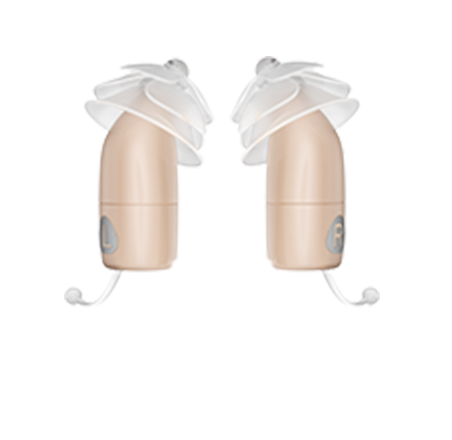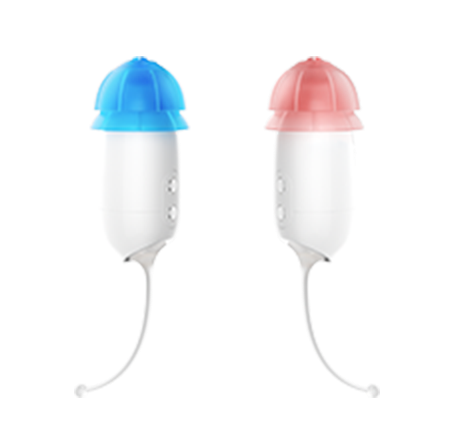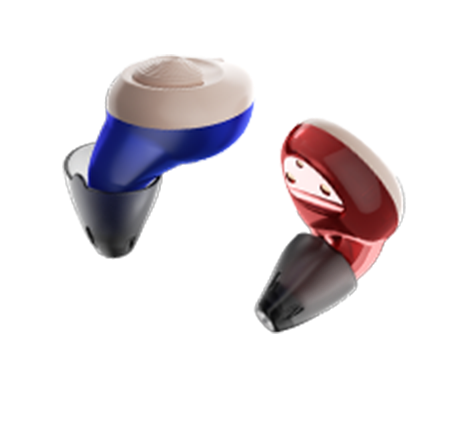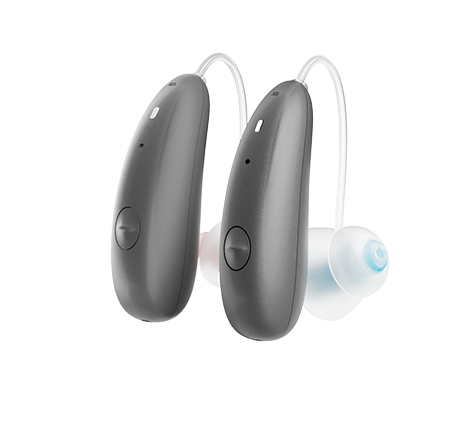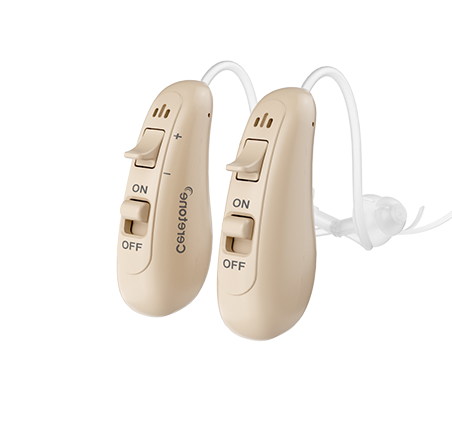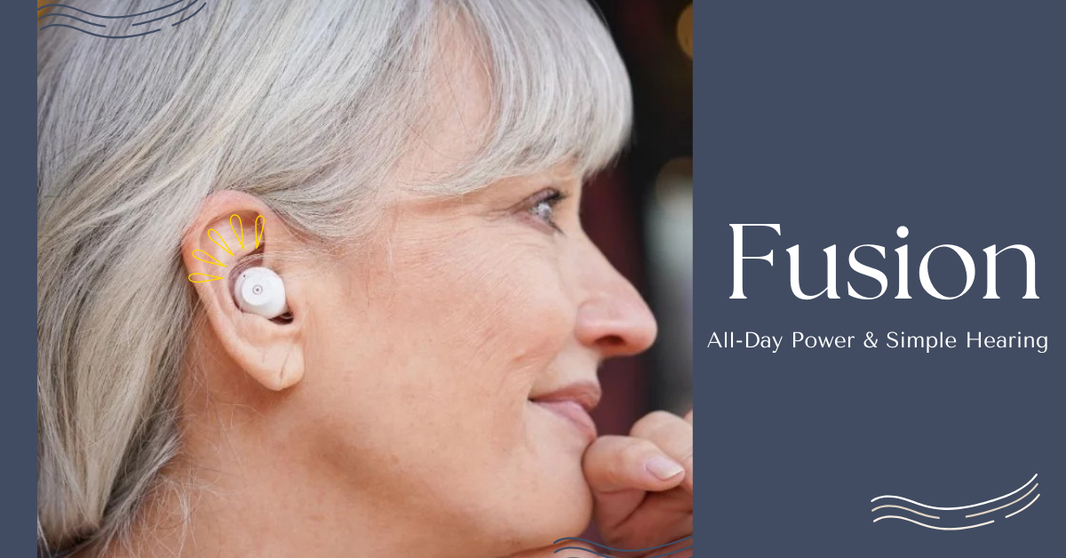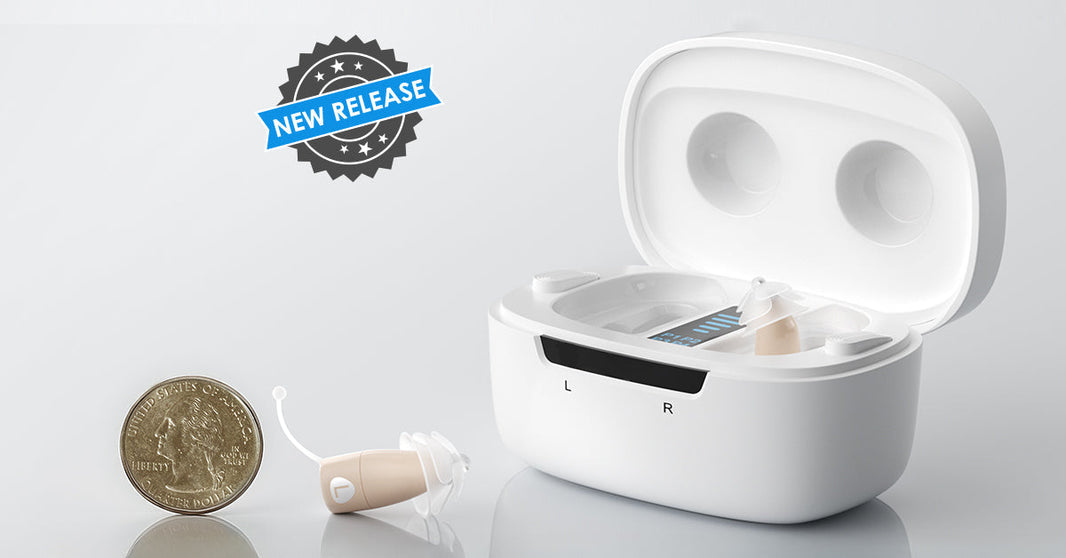
Hearing Aid VS Amplifier: Which One is Right For You?
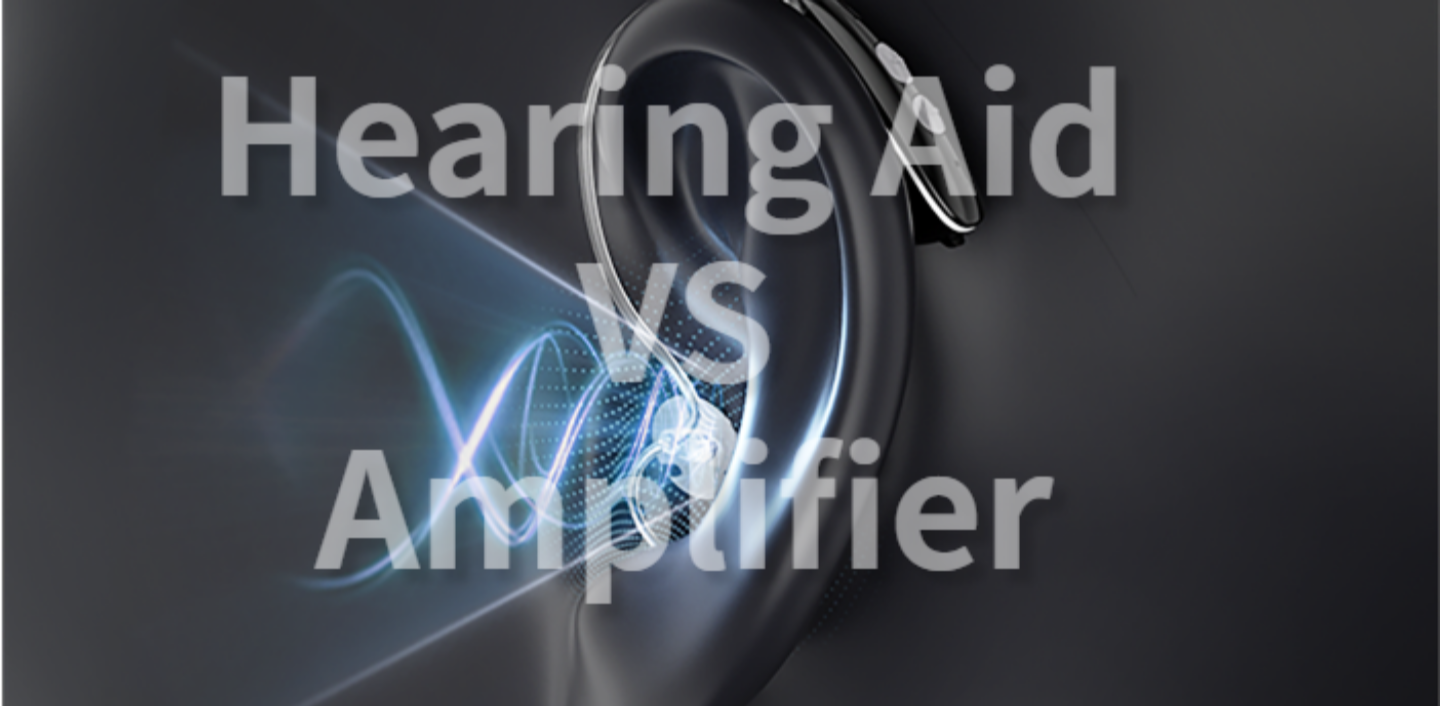
For many, hearing loss is an inevitable reality of growing older. It can start subtly. Maybe you miss a few words in conversations or have a hard time hearing in a noisy restaurant. But over time, it may become more obvious. Thankfully, modern hearing technology offers solutions to help you combat this challenge and stay connected to the world around you.
From advanced hearing aids tailored to specific or diagnosed hearing problems to simple hearing amplifiers made for occasional use, a quick Google search will show you a wide range of options available. However, it’s important to remember that these hearing devices serve pretty different purposes. So before you go spending your hard earned money on the wrong audio hearing device – be sure to do your due diligence.
What Are Hearing Amplifiers?

Hearing amplifiers, also known as Personal Sound Amplification Products (PSAPs), are designed to amplify environmental sounds around you. They aren’t prescribed by a professional or intended to treat hearing loss.
In fact, they’re primarily for individuals with normal hearing who simply want to turn the volume up around them in certain situations. Some examples include the following:
- Hunting or bird watching.
- Attending lectures or presentations.
- Trying to make out sounds from a far distance.
Affordable, But Limited
One of the factors that make hearing amplifiers attractive is the price. They usually cost anywhere from $15 to $100, making them a much more affordable option compared to hearing aids. This lower price tag strikes the interest of someone who might be unsure about what exactly they need, or who just need a quick solution without an expensive commitment. But it’s important to note, cheap comes with trade-offs.
Amplifiers boost all sounds equally, which can lead to distortion, discomfort, and difficulty discerning speech in noisy settings. They typically lack advanced features like noise reduction and directional microphones.
Who Should Use Hearing Amplifiers?
Again, hearing amplifiers aren’t for those with diagnosed hearing loss. However, they work great for people with mild hearing challenges.
If you find yourself needing a little boost to hear your surroundings better in day-to-day life, the right ear amplifier could potentially make a difference. For a customized solution to treat progressing hearing loss, you should consult with a physician or audiologist and choose hearing aids.
What are Hearing Aids?

Hearing aids are FDA-regulated medical devices specifically designed to address hearing loss. These devices are custom-fit by an audiologist to match your needs based on an audiogram.
Read More: OTC Hearing Aids vs Prescription
Key Features of Hearing Aids
The following list includes just a few of the features that set hearing aids apart from other audio hearing devices:
- Custom Tuning: Amplifies only the sounds you struggle to hear, such as high-frequency sounds for improved clarity.
- Compression Technology: Balances sound levels by amplifying soft sounds and reducing loud sounds to safe levels.
- Advanced Features: Directional microphones, Bluetooth connectivity, earmolds, and wireless syncing with other devices like TVs or external microphones.
Hearing aids are personalized for each individual to enhance sound quality, while keeping listening levels safe and comfortable.
Who Should Use Hearing Aids?
For someone with hearing loss, hearing aids can be a big help in your daily life. These devices work well for a number of hearing problems such as conductive hearing loss, single-sided deafness, sensorineural hearing loss and mixed hearing loss.
If your hearing loss is mild, you might not need a device just yet, but keep in mind – it’s always a good idea to stay on top of your hearing health.
Read More: Types of Hearing Aids: How to Pick the Best One for You
Key Differences: Hearing Aids vs Hearing Amplifiers

Whether you’re researching hearing devices for seniors in your family or shopping for a personal sound amplifier, choosing the right device is crucial. Substituting an amplifier for a hearing aid can make untreated hearing loss worse over time, as certain types of hearing loss require professional treatment to prevent progression.
Here’s a visual representation of the key differences between the two audio-hearing devices:
|
Feature |
Hearing Aid |
Amplifier |
|
Electronic product |
Yes |
Yes |
|
Medical Device |
Yes |
No |
|
FDA Regulated |
Yes |
No |
|
Amplify sound |
Yes |
Yes |
|
Purpose |
Improve hearing for people with hearing loss. |
Amplify all sound around the environment. |
|
Customization |
Customizable settings |
One-size-fits-all amplification level. |
|
Noise reduction |
Yes |
No |
|
Feedback cancellation |
Yes |
No |
|
speech enhancement |
Yes |
No |
|
Size |
Compact and discreet |
Larger and more noticeable |
|
Cost |
OTC: $100–$1,000 Prescription: $1,000–$6,000+ |
More affordable (under $100) |
|
Prescription |
OTC hearing aids and prescription available |
No prescription required |
|
Sound Quality |
Clarity, distortion reduction. |
Less clear, especially for speech or high frequencies. |
|
Comfort |
Comfort with custom fit options. |
Less comfortable |
|
Battery Life |
Longer battery life |
Shorter battery life |
|
Adjustability |
Multiple programs and adjustable settings |
Limited adjustment options |
|
Waterproof |
Yes |
No |
Ceretone OTC Hearing Aids For Your Consideration
Understanding the difference between hearing aids and hearing amplifiers is critical for choosing the right device. If you’re looking for a customized solution for hearing loss, the advanced technology of hearing aids may be the best choice to help you continue to live, work and stay connected as close to your pre-hearing loss capacity. While hearing amplifiers are more of a budget-friendly option, keep in mind they should only be used for recreational and occasional sound enhancement.
One of the most accessible options available today is OTC (over-the-counter) hearing aids. OTC hearing aids offer numerous benefits, such as no need for a prescription or a doctor’s visit, making them a hassle-free solution for many people.
If you’re ready to improve your hearing, consider Ceretone OTC Hearing Aids. Our devices combine affordability with high-quality sound amplification, offering a solution for mild to moderate hearing loss. With Ceretone, you can experience the convenience of OTC availability without compromising on performance.
Read More:
Ceretone Core One vs Eargo 7 Hearing Aids: Alternative, Reviews & Price
Lexie B2 Hearing Aids vs. Ceretone Beacon: Why Pay More for Less?
Ceretone Beacon vs Sennheiser All-Day Clear - RIC Hearing Aid Reviews
When Is the Best Time to Use Hearing Aids?
RIC vs. BTE Hearing Aids: Which Suit Your Needs and Budget?
Completely In Canal CIC Hearing Aids: Everything You Must Know
Why Do My Ears Itch When I Wear My Hearing Aid? Here’s How to Fix It!
